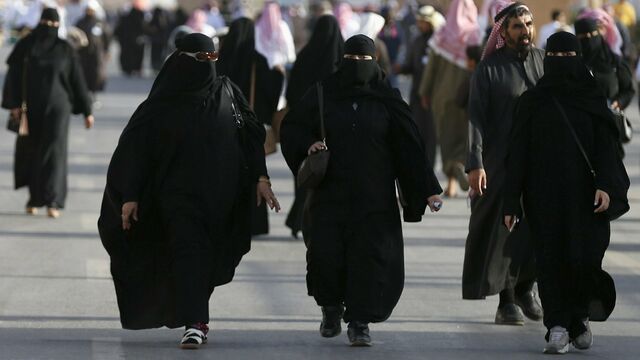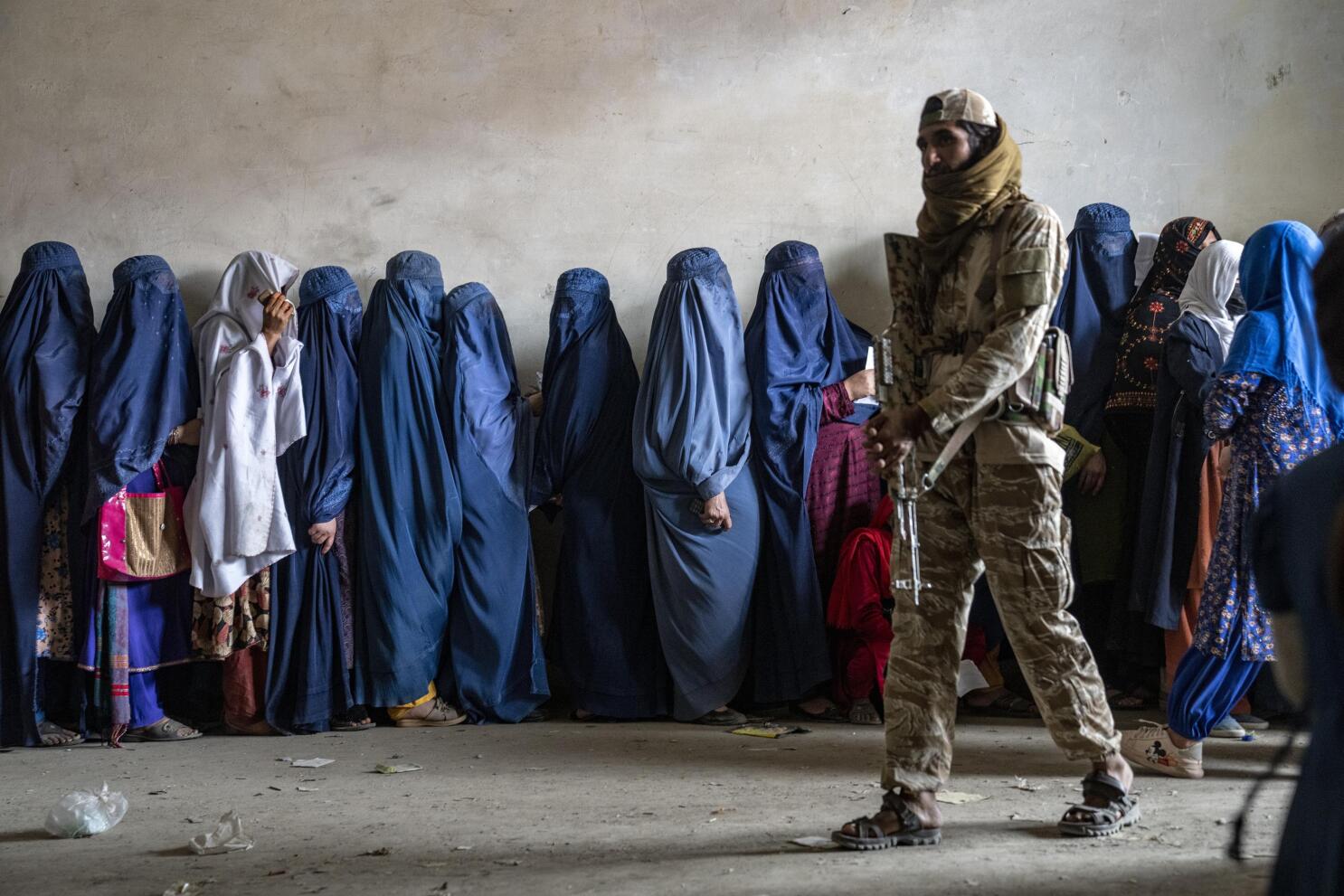Trends
Iran’s Ultimatum To Iranian Women, Veil Up or Face Death Penalty. These 3 Countries Are Where Sharia law Is The Toughest On Women
Published
1 year agoon

In a move that feels ripped from the darkest pages of history, Iran is set to impose one of the most draconian laws yet against women. Dubbed the “Law on Protecting the Family through the Promotion of the Culture of Chastity and Hijab,” this Orwellian decree isn’t about protection—it’s about repression, control, and fear.
This latest development comes from a country still coming to terms with the aftershocks of the 2022 “Woman Life Freedom” uprising, sparked by the tragic death of Jina Mahsa Amini in police custody. Instead of heeding the cries for justice and reform, Iranian authorities seem determined to silence them with a brutal iron fist.
The Anatomy of Oppression
The new law is a smorgasbord of punishments, ranging from flogging and harsh prison sentences to exorbitant fines and travel bans. Even private entities that fail to enforce veiling could face severe penalties, while officials and vigilantes who violently attack unveiled women are granted impunity. This isn’t just about clothes—it’s about quashing freedom, autonomy, and basic human rights.
This shameful law intensifies the persecution of women and girls for daring to stand up for their rights. The authorities are seeking to entrench the already suffocating system of repression against women while making their daily lives even more intolerable.
Let us look a little deeper into this law.
This law, officially called the “Law on Protecting the Family through the Promotion of the Culture of Chastity and Hijab,” is set to come into force on December 13, 2024, as confirmed by Iran’s Speaker of Parliament.
The law, which spans 74 articles, targets women and girls who refuse to comply with compulsory veiling through harsh measures like flogging, hefty fines, long prison terms, travel bans, and restrictions on their education and employment opportunities.
This oppressive legislation was drafted in May 2023 by Iran’s judiciary as a response to the growing defiance of veiling laws. This wave of resistance was triggered by the tragic death of Jina Mahsa Amini in custody, an incident that ignited the “Woman Life Freedom” uprising in September 2022.
Despite the president not yet ratifying the bill, the Guardian Council gave its stamp of approval earlier this year. On November 27, 2024, the Speaker of Parliament, Mohammad Ghalibaf, confirmed that the law would take effect in mid-December.

Death Penalty, Flogging, and Fines – A System of Fear and Control
Iran’s new hijab law is a chilling mix of brutality and control. It criminalizes women’s dress choices with extreme penalties, from flogging to the death penalty, hefty fines, and long prison sentences. The law aims to enforce strict dress codes under the guise of “nudity, indecency, unveiling, and bad dressing (bad poosheshi),” but the definitions are vague, leaving room for abuse.
According to Article 50, “unveiling” means any instance where women or girls fail to cover their heads with a hijab, chador, or headscarf. “Bad dressing” is even more invasive—it’s defined as revealing any body parts below the neck, except the hands and feet, or wearing clothing that could “incite sin” in others (Article 48). Terms like “nudity” and “indecency” aren’t even defined, making the law a weapon for subjective interpretation.
One of the most shocking aspects lies in Article 37. It states that promoting or collaborating with foreign entities to “propagate nudity, unveiling, or bad dressing” can lead to a decade in prison and fines up to $12,000. But if these actions are labeled as “corruption on earth,” as per Article 286 of the Islamic Penal Code, women and girls could face the death penalty. This means peaceful acts like sharing videos of being unveiled with international media could result in execution.
Escalating Fines and Restrictions
The penalties for “bad dressing” alone are steep. First-time violations incur fines of around $160, rising to $4,000 by the fourth infraction. Repeat “offenders” face fines as high as $8,000, five years in prison, two-year travel bans, and even bans on using social media (Articles 48 and 38).
The punishments grow harsher for “nudity.” Article 49 stipulates immediate detention, fines up to $12,000, and prison sentences of up to 10 years for a first offense. Repeat violations lead to up to 15 years in prison or fines nearing $22,000.
For women unable to pay, the consequences spiral further. Article 56 allows authorities to bar them from recovering impounded vehicles, renewing passports, obtaining licenses, or leaving the country. They could even face asset seizures or imprisonment.
Flogging and Prison Sentences for Defiance
Article 67 ensures flogging remains an active punishment for anyone who “offends public decency” or engages in “forbidden acts,” a clause often used against women resisting compulsory veiling. Meanwhile, Article 38 punishes “insulting or ridiculing the hijab” with up to five years in prison, travel bans, and hefty fines.
The law’s reach extends beyond personal actions. It bans importing or selling items like clothes, books, and even mannequins that “promote nudity, indecency, unveiling, or bad dressing.”
Iran’s hijab law is more than just a dress code; it’s a calculated tool of oppression, designed to crush dissent and strip women of autonomy. It doesn’t just target individual freedoms—it dismantles the very idea of choice, leaving women with no escape from the suffocating control of the state.
The law also grants unchecked powers to security forces and promoting a culture of violence against women. The law empowers intelligence and security entities, including the police, the Ministry of Intelligence, the Intelligence Organization of the Islamic Revolutionary Guard Corps (IRGC), and the Basiji agents of the IRGC, to enforce compulsory veiling.
Encouraging Vigilantism
Article 59 grants impunity to vigilantes who harass or attack women under the pretense of enforcing veiling as a “religious obligation.” Worse still, Article 60 criminalizes any attempt to intervene or stop such harassment, imposing prison sentences or fines on those who act in defense of women and girls.
Punishing Businesses
Business owners are not spared either. Article 40 imposes severe penalties, including fines, imprisonment, and advertising restrictions, on those who allow unveiled women on their premises or are deemed to “promote” defiance of compulsory veiling.
A March 2024 report by the UN Fact-Finding Mission on Iran (FFMI) classified these actions as crimes against humanity. The illustrates a systematic campaign of human rights violations against women and girls, constituting “persecution” based on gender.

The Global Context of Legalized Oppression, 3 Top Nations
Iran is not alone in using religious or cultural pretexts to codify gender inequality. Across nations governed by strict interpretations of Sharia law, women face restrictions that limit education, employment, healthcare, and personal freedoms.
Saudi Arabia’s Continued Struggle
Though Saudi Arabia has made headlines with reforms like lifting the driving ban for women, systemic oppression persists. The male guardianship system, now codified as the Personal Status Law, entrenches gender inequality. Women remain legally bound to obey their male guardians and face severe restrictions on marriage, divorce, and even custody of their children.
In a move criticized by rights groups, Saudi Arabia’s ambassador was recently appointed to chair the UN Commission on the Status of Women, despite the kingdom’s “abysmal” record on gender equality.
Iran
We have already spoken in detail about Iran’s new law but here are more shocking facts –
A male guardianship system controls many aspects of their lives, requiring women to obtain permission from a male guardian for marriage, divorce, custody, inheritance, and even travel abroad.
Shockingly, the legal age of marriage remains at 13, with provisions for even younger marriages if sanctioned by a male guardian.
The tragic case of Mahsa Amini in September 2022, where the 22-year-old died after being tortured for wearing her hijab “incorrectly,” ignited mass protests. Authorities responded with brutality, detaining tens of thousands and killing hundreds, including children.
Physical punishments were replaced with high-tech surveillance to monitor women’s attire. Despite the risks, Iranian women remain defiant.
A recent incident at Tehran’s Islamic Azad University showcased their courage. A female student publicly undressed in protest against the hijab law, only to be violently arrested and forcibly disappeared, her whereabouts still unknown.

Afghanistan’s Grim Return to the Past
The withdrawal of U.S. troops in 2021 marked a devastating setback for Afghan women. The Taliban, regaining power, reinstated a repressive regime grounded in extreme interpretations of Islamic law.
Afghan women face harsh restrictions, such as needing a male relative’s accompaniment outside their homes. They are barred from education, most forms of employment, and even working for NGOs.
Basic rights like healthcare access have diminished significantly. Forced marriages, child marriages, honor killings, and violence against women remain rampant, perpetuating a culture of fear and subjugation. Despite international outcry, the Taliban’s oppression continues unabated.
Recently, the Taliban banned Afghan women from attending nursing and midwife courses while the official decree detailing the ban has not been shared publicly, but several media reports confirmed that the order was announced at a meeting of the Taliban public health ministry and communicated to training institutes soon after.
Nursing students and medical trainers from Kabul and the provinces confirmed to the Guardian that they had been informed by their institutes that their courses had been suspended.
In a country like Afghanistan, where people are bound to traditional and cultural practices, women in most parts of the country are not allowed to be checked or treated by a male doctor.
With this ban, it will mean there will be no more midwives, nurses, female lab and medical personnel to serve female patients. If you ban women from being treated by male healthcare professionals, and then you ban women from training to become healthcare professionals, the consequences are clear: women will not have access to healthcare and will die as a result.
The Taliban’s bid for United Nations recognition has opened a potential avenue for change. Advocacy groups are urging the UN to leverage this request as a bargaining chip, demanding guarantees of women’s rights and freedoms, particularly access to education.
The Last Bit
Clearly, achieving gender equality in societies governed by Sharia law is fraught with challenges.
Yet, the courage of women’s rights activists and global attention offers some glimmers of hope. Efforts to amplify the voices of women, push for legal reforms, and enable international accountability are vital for securing a more inclusive and equitable future.
Highlighting and understanding the lived realities of women in these repressive regimes is crucial for catalyzing meaningful change. While the road ahead is long and full of resistance, the unwavering spirit of women in Iran, Afghanistan, and beyond serves as a powerful example of the fight for equality.

You may like
-


High-Stakes Peace Talks Ahead. Trump Team Leads, Zelenskyy Joins, But Ukraine Faces Tough Concessions—A Betrayal? Even As European Allies Watch In Disbelief
-


Israel Shifts Focus From Gaza To West Bank. Why? Has Trump Administration Inadvertently Given Israel A Unique Opportunity To Extend Superiority In The Region?
-


The Case Of Kremlin’s Oil. China And Indian Refineries Look At Alternatives, Higher Costs. Oil Hits 3-Month High And Russia Doubles Down ‘Will Continue Oil And Gas Projects’.
-


Pakistan Launches Airstrikes In Afghanistan, Killing 15. Taliban Threatens Retaliation. The Perils Of Proxy, Pakistan, The Taliban, And The Evolution Of Terrorism In Afghanistan
-


US Hand In Preparing Syrian Rebel Groups To Help Ouster Bashar al-Assad. How US Plays Puppet Master In Toppling Governments Worldwide. Why Can’t The US Mind Its Own Business?
-


The Invisible Hand Of The Deep State. From CIA To NED—The Evolution Of Covert Influence In Global Politics